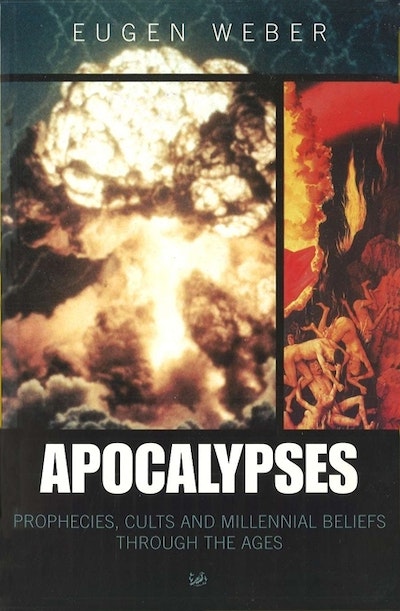[]
Apocalypses
Buy from…
- Published: 8 June 2011
- ISBN: 9781446476994
- Imprint: Vintage Digital
- Format: EBook
- Pages: 304
An upbeat look at the end of the world...a fascinating and stylish book
Jonathan Sale, Daily Telegraph
Interesting and informative...a fascinating brief history of a powerful but often hidden thread in Western ways of thought
Economist
The aim of Apocalypses is to understand rather than condemn, and in this Weber succeeds brilliantly. A scholar who writes with a light touch, he has illuminated an important swathe of history which most respectable historians tend to neglect
John Gross, Mail on Sunday
Written with the erudition and lucidity for which Eugen Weber is famous...a stimulating book
Roger Scruton, The Times
